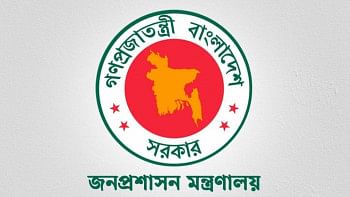CHOBI MELA X: A purposeful discussion on archives

Considered as one of the most significant photography events in Asia and the first of a regular biennale, Chobi Mela - International Festival of Photography, is organised by Drik Picture Library Ltd and Pathshala South Asian Media Institute. 21 countries, including Australia, Brazil, Germany, Italy, Nepal, USA and others, are participating this year.
As a part of the tenth installment of Chobi Mela, a discussion session, titled, 'Engaging The Archive: Storytelling and Scholarship' was organised at Goethe-Institut Bangladesh recently. Alisha Sett and Samia Khatun were the speakers of the session, which was moderated by photographer and curator Nayantara G Kakshapati.
Alisha Sett is a writer, curator and educator from Mumbai. She is the co-founder and director of the Kashmir Photo Collective and Deputy Course Director of Critical Theory, Aesthetics and Practice at Jnanapravaha Mumbai. Her research on histories of South Asian photography has been supported by an Edmond J Safra Fellowship (Harvard University) and Inlaks Shivdasani Foundation scholarship. Sett received her MA in History of Art from the Courtauld Institute of Art as a part of their special option 'Documentary Reborn: Photography, Film and Video in Global Contemporary Art'; she was a part of the Program for Narrative and Documentary Practice at Tufts University where she received her BA in Political Science and English Literature. In her presentation, she spoke about the Kashmir Photo Collective, a digital archive that aims to create an alternative photographic history of the Kashmir Valley. “We invite individuals and families, photo studios and photographers, as well as institutions to contribute their photographs and stories to the archive,” said Sett. Since its inception in 2014, the initiative has archived numerous private collections.
Samia Khatun is a writer, filmmaker and cultural historian. She was born in Dhaka, educated in Sydney and has held research fellowships in Berlin, Dunedin, New York and Melbourne. She is soon to develop a history programme at the University of Liberal Arts, Bangladesh. The central piece of her presentation was her book, Australianama: The South Asian Odyssey. In the book, Khatun weaves together an extraordinary range of powerful South Asian and Aboriginal narratives from across Australia, showing how stories in colonised tongues can transform our understandings of the past and present, and point the way to a more hopeful future. The session shed light on the different ways that archives reveal interesting details about how we view the world. Towards the end, the speakers opened up about their processes and preferences for working with archives and answered a few questions from the audience.


 For all latest news, follow The Daily Star's Google News channel.
For all latest news, follow The Daily Star's Google News channel. 



Comments